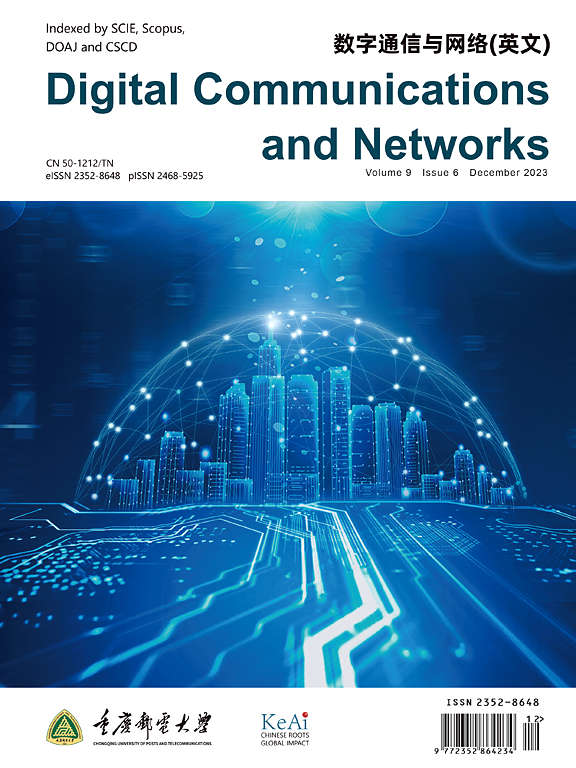无人机协作边缘计算中基于部分观测学习的任务卸载和频谱分配
IF 7.5
2区 计算机科学
Q1 TELECOMMUNICATIONS
引用次数: 0
摘要
本文章由计算机程序翻译,如有差异,请以英文原文为准。
Partial observation learning-based task offloading and spectrum allocation in UAV collaborative edge computing
Capable of flexibly supporting diverse applications and providing computation services, the Mobile Edge Computing (MEC)-assisted Unmanned Aerial Vehicle (UAV) network is emerging as an innovational paradigm. In this paradigm, the heterogeneous resources of the network, including computing and communication resources, should be allocated properly to reduce computation and communication latency as well as energy consumption. However, most existing works solely focus on the optimization issues with global information, which is generally difficult to obtain in real-world scenarios. In this paper, fully considering the incomplete information resulting from diverse types of tasks, we study the joint task offloading and spectrum allocation problem in UAV network, where free UAV nodes serve as helpers for cooperative computation. The objective is to jointly optimize offloading mode, collaboration pairing, and channel allocation to minimize the weighted network cost. To achieve the purpose with only partial observation, an extensive-form game is introduced to reformulate the problem, and a regret learning-based scheme is proposed to achieve the equilibrium solution. With retrospective improvement property and information set concept, the designed algorithm is capable of combating incomplete information and obtaining more precise allocation patterns for diverse tasks. Numerical results show that our proposed algorithm outperforms the benchmarks across various settings.
求助全文
通过发布文献求助,成功后即可免费获取论文全文。
去求助
来源期刊

Digital Communications and Networks
Computer Science-Hardware and Architecture
CiteScore
12.80
自引率
5.10%
发文量
915
审稿时长
30 weeks
期刊介绍:
Digital Communications and Networks is a prestigious journal that emphasizes on communication systems and networks. We publish only top-notch original articles and authoritative reviews, which undergo rigorous peer-review. We are proud to announce that all our articles are fully Open Access and can be accessed on ScienceDirect. Our journal is recognized and indexed by eminent databases such as the Science Citation Index Expanded (SCIE) and Scopus.
In addition to regular articles, we may also consider exceptional conference papers that have been significantly expanded. Furthermore, we periodically release special issues that focus on specific aspects of the field.
In conclusion, Digital Communications and Networks is a leading journal that guarantees exceptional quality and accessibility for researchers and scholars in the field of communication systems and networks.
 求助内容:
求助内容: 应助结果提醒方式:
应助结果提醒方式:


